39 Questions to Ask When Renting an Apartment: The Ultimate Checklist

Feb 06, 2024 February 06, 2024
There are a few important things you should find out on your apartment hunt or before signing any lease agreement, especially if you are a first-time apartment renter. It doesn't really matter how much you love the place if there's a mismatch between what you need and what they're offering.
The great news is that we've put together a list of 39 questions to ask when renting an apartment that will be useful in your condo rental search to make sure you find the right place for you. Make sure you get answers for these while apartment hunting to avoid losing money on the wrong unit, being locked into a lease that doesn't work for you, or finding yourself in a bad situation.
This article was last updated on Feb 9, 2024.
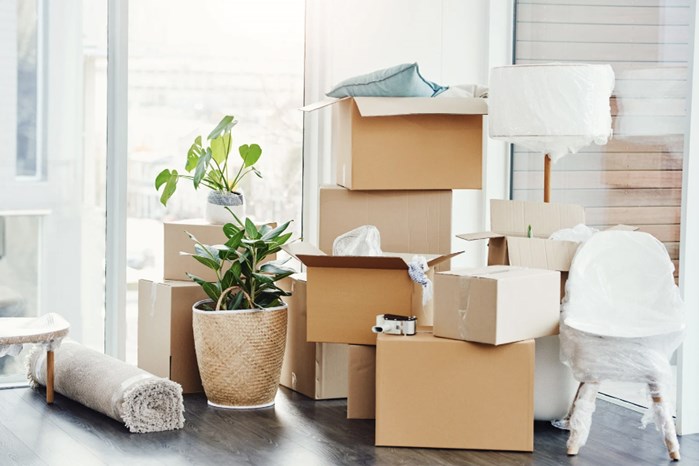
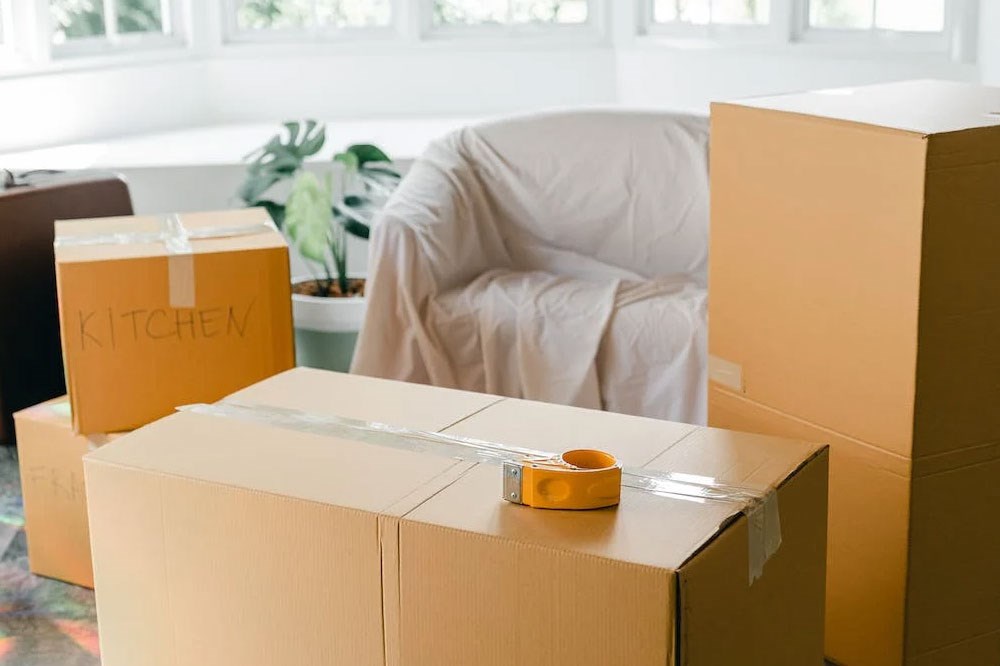
How Much Is the Rent?
Obviously, you'll need to know exactly how much the monthly rent is, and whether or not any utilities are included. This may seem like an obvious question, but many rental communities will offer incentives to sign the lease, including free months of rent. And sometimes the advertised price will include these, making rent more expensive once the discount is over.
Also, it is especially important now because prices have started to stabilize across Greater Miami. In places like Sunny Isles, rents for a 1-bed have even fallen by 14.4% compared to last year. So, be sure you or your real estate agent know what your monthly rent will be, also known as the “net effective rent.”Is There a Lease?
In most big cities, every apartment or condo rental will come with a lease. You will need to know exactly when the lease begins and ends, and how long the lease is good for. A standard lease is for 12 months, but lease terms can be flexible, so if you are looking for a shorter or longer lease, be sure to ask your letting agent, real estate agent, or landlord what is possible.What Are the Lease Terms?
Be sure you know, read, and understand what the lease terms are. Some leases will provide additional information on rent pricing or increases after the initial lease term, or other terms that will be important to you. There may be other lease terms you should know about, such as quiet hours, pet policies, parking policies, and guest policies.
How Much Is the Deposit?
First-time apartment renters may not have this in mind when making their budgets, but deposits are fundamental and they can vary. They may require one month to three months of rent upfront. Typically in Miami, you'll have to pay first and last months' rent up front, plus one month of deposit if you are renting a condo. If you are renting in a rental community, they will usually require one month's rent deposit, plus $1,000-$1,500.
What Are the Move-in Costs?
Find out exactly how much it will cost you to move in. Depending on the type of property you are moving into, most rentals will require an application fee. Also, ask whether you'll need to pay any elevator deposits or move-in fees that the building may require, or other costs related to moving. Many move-in deposits are refundable either after moving in or once you move out.
What Is the Application Process and Screening Criteria?
There will be requirements for you to be approved as a tenant. Most rentals will require an application fee for them to do a background check and reference check. If you are applying to rent a condo in a condo building with an HOA, you will likely need condo board approval before moving in. Find out how long it typically takes to be approved for move-in so you can plan accordingly.
Most rental applications are quite thorough and will be either automated online or forms to fill out. Sometimes they will require referrals from former landlords and/or employers, and they may also ask for bank statements as proof of funds.
When Can I Move in?
Before signing your lease, you and your rental agent, real estate agent, or landlord will determine your move-in date, and it will be stated in your lease. While your apartment may be available as soon as your application is approved, in some cases, the landlord may be making repairs or improvements to the property before making it available to rent.
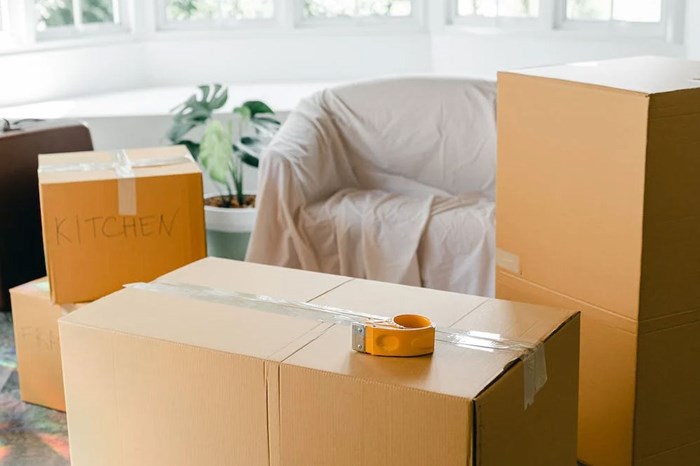
Can I Move in on the Weekend?
Some condo buildings only allow move-ins during weekdays, while many rental buildings will not have restrictions. Make sure you find out what your particular situation is so you can schedule your move. Don’t forget to get the keys beforehand!
How Do I Pay Rent? Can I Pay Rent with Zelle or Venmo?
Discuss how you want to pay your rent and how the landlord prefers to be paid. It's great if your landlord will accept online payments such as Venmo, Zelle, and other electronic transfer services to prevent checks from getting lost in transit and incur late penalties. But if not, make sure you are fully aware of where the check must be left for them to receive it on time.
When Is the Rent Due, and Are There Prorations?
While most buildings will run on a typical schedule with rent due on the 1st of the month, your specific case may differ if you move in on another date, which may require the first month's rent to be pro-rated.
Are There Late Fees?
Find out if there is any grace period for delayed rent payments. In many cases, you will have three to five days to make the rent payment before any late fee is applied. You may have to pay a late fee of about 5% -10% of the rent if you pay after the grace period.
What Does the Security Deposit Cover?
Security deposits vary in their coverage. You’ll have to ask your agent or landlord what its exceptions are or review this in your lease. Normal wear and tear is not typically considered a proper cause for withholding the security deposit, so find out exactly what you must do upon move-out to have the deposit returned to you.
What Is the Building's Pet Policy?
Pets are family, too. So it makes sense to ask what the building's pet policy is and what the pet fees are. Does the building allow all pets or only cats? In many cases, you must pay a one-time non-refundable deposit for your pet to cover deep cleaning as well as any damage that your pet may cause to the property. In other cases, they may want to charge a monthly fee for pet ownership.
There may also be some restrictions on the type of pets that are allowed, as well as the size, so be sure to check this thoroughly if you own or plan to adopt a furry companion. If the building is pet friendly, you will also want to ask what the pet deposit is and if the building charges a pet deposit or pet rent.

What If I Have an ESA Pet?
If you have an ESA (emotional service animal) pet, with the proper documentation, no building is allowed to reject you by law. In 2020, Florida passed a new law that states what you and your current or prospective housing provider can and cannot do concerning Emotional Service Animals.
What Kind of Parking Is Available?
As in any major city, parking is sometimes hard to come by in Miami, and it can become a nightmare if you don't have secured parking at home or must find street parking, although most new condo buildings in Miami will have a parking garage.
Definitely ask what the parking situation is before you decide, ideally during your apartment tour. In some cases, a parking space is included with the monthly rent, other buildings may offer valet-only spaces — meaning only the valet parks your car. In other cases, you may have to pay extra for a designated parking spot or garage pass or get on a waiting list for extra spaces.
The gist of it is: if parking is important to you, be sure to ask exactly what parking type is assigned to that unit.
What Are the Amenities? And When Can I Use Them?
One of the best parts of living in an apartment or condo building is the amenities available for your enjoyment. Things like pools, BBQ areas, gyms, lounge rooms or media rooms, kids' rooms, and office spaces can significantly increase your quality of life. So, if any of these are important to you, make sure they’re available where you want to rent.
Also, it’s important to find out when these amenities are open, who can use them, whether you can bring guests, and what you may need to do to reserve them.
Is the Apartment or Condo Unit also for Sale?
This may not happen as often in an apartment building where a single proprietor owns the entire building, but it can happen in a condo. If the unit you are considering renting is also for sale, you will likely have requests to show your place often.
Before you sign a lease, you should agree on whether you will be ok with showings, with how much notice, how often, and when, if you need to restrict the days. Also ask how the sale of the building will affect your right to stay in the apartment or your current lease terms, such as the amount of rent you'll need to pay.
Are There Plans to Update or Improve the Property?
If the building is under construction, or if there are plans to make improvements to the property soon, you must consider how that is going to affect you if you work at home, or if you are sensitive to noise. Also, some renovations for older buildings require balconies to be closed, as well as pools and amenities, for a certain period.
Although living in a renovated building and/or unit can make life easier and more pleasant, it also could mean that the landlord is planning to raise the rent soon. So, find out what the renovation project may mean to you as far as your living expenses.
How Much Notice Will I Need to Give Before Moving out?
This should be a pretty straightforward answer because it will be determined in your lease. Most leases will be for a fixed amount of months and will stipulate that you must give notice a certain amount of days before the lease-end date. The standard notification is typically 30 days but can vary. Also, be sure that you know how you will need to give notice that you are leaving, e.g. in writing.
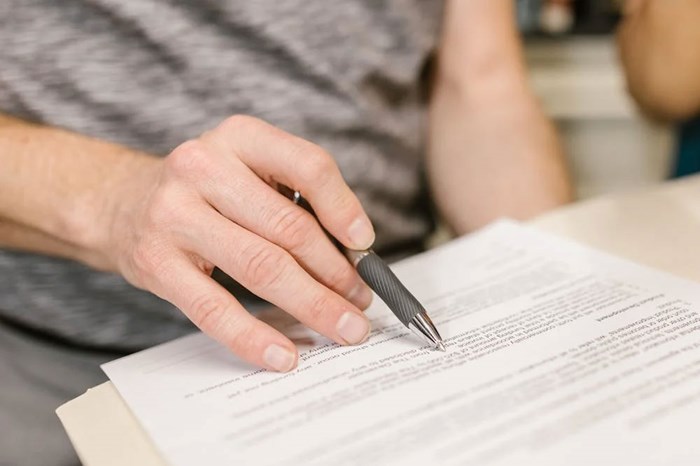
How Much Notice Must the Landlord Give Me If They're Canceling My Lease or Need Early Termination?
This will also be determined in your lease. In Florida, some laws clearly define under what circumstances a landlord can terminate a lease depending on the lease term in place, and if so, when they must provide you with notice. For example, if you are in a 12-month lease, the landlord may terminate your lease with 60 days’ notice. If you are in another state, be sure to check your state laws.
What Is the Penalty for Breaking My Lease?
In Miami, most leases that real estate agents use come with an automatic lease cancellation addendum that typically charges the equivalent of two months' worth of rent for breaking the lease. However, in the end, that may be negotiable, as is any other lease term, especially depending on the market. If you are a service member and are being restationed or have a change or order, you may terminate your lease without penalty with 30 days' notice.
What About a Month-to-Month Lease?
In Florida, some leases state that after the initial 12-month term, tenants can have a month-to-month lease with the same basic terms. It's also best to discuss these issues with the leasing agent, property manager, or owner, however.
Can I Sublet or Airbnb My Apartment?
This is something that may vary a lot, depending on where you live and the type of lease you have. In Florida, it is legal to sublet your apartment, however, it is not that common and many buildings prohibit subleases as well as Airbnb rentals. In some Miami Beach zones, it is even banned! So, if you plan to rent out your apartment at some point, make sure you know your landlord's and city's policy on this so you're not breaking your lease or violating any rules.
Can I Make Changes to the Apartment?
If you're interested in making changes to the apartment, like painting the walls, find out how that affects your lease terms and security deposit agreement. In some cases, you'll need to restore the walls to their original color or cover the cost of repainting to comply with your lease agreement and get your deposit back when you move out.
Discuss your plans with the landlord in advance to see if you can get around this. If the property is in a rental community, chances are you'll have to deliver the property back to its original condition. When renting a condo, landlords may be happy to have a tenant who wants to invest in improving their property. Just be sure to talk to them.
What Appliances Are Included?
Generally, appliances are included in leases. However, make sure you understand what appliances come with the apartment, and ask whether the appliances that you are seeing during the walk-through are the same ones that will be there when you move in. Also, make sure there are smoke detectors and they work.
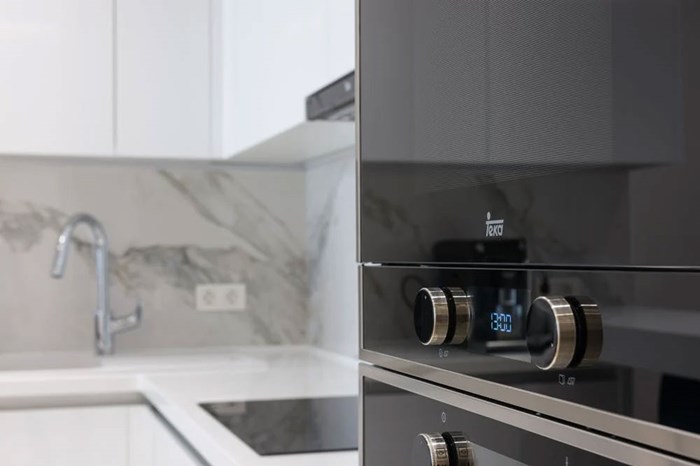
Are Utilities Included? If so, Which Ones?
In most rentals, tenants usually have to cover electricity, but in Miami, many condos come with water, cable, and internet included, as well as pest control. In apartment buildings, it varies, so either way it's important to ask, as those fees can add up.
How Much Will Utilities Cost?
If there is one building where utilities are included versus another where they’re not, that could easily mean a difference of $100 or more per month that you'll want to factor into your decision. Apartment communities tend to charge additional fees for water, internet, renters insurance, pet rent, as well as trash pick-up. Be sure you know all of the fees included for certain utilities and services. The property manager will also be able to tell you many of these costs if the real estate agent cannot.
What Else Is Included in the Apartment?
When seeing the unit, is there anything you expected to be there that isn’t? Because if something is missing, then this is one of the questions to ask when touring an apartment. For example, are window treatments included? If you want window treatments or blackout shades, stipulate this in the lease.
If you are looking at a brand new unit, and you don't see those things, or other common items like ceiling light fixtures, closet build-outs, bathroom accessories, or towel racks, make sure you ask and have in writing that the apartment will come with those items. Those are common things missing in a brand new, never-lived-in apartment, especially a condo.
Who Do I Contact With Any Issues?
If you notice some items may need minor repair, state that in the lease, ask who you should direct maintenance requests to and who is responsible for repairs of items greater than $100. Don’t forget this! It’s an important question to ask before signing a lease.
In apartment buildings, maintenance requests are usually handled directly through the property manager or leasing office. But if you are renting a condo, you will need to know from the landlord who you can call if you have a maintenance issue in the unit. If you notice a problem in a common area, report it to the building maintenance or management office.
What Types of Repairs Are Covered in the Rental Agreement?
As mentioned above, ask about the sort of repairs that the owner will cover expenses for. Typically, these should include all repairs that are not caused directly by your negligence or misuse of the property. But in some cases, things such as a clogged drain or broken fixture may be considered the tenant's responsibility. It's always good to know in advance what you'll be held responsible for and what you can count on the landlord to pay for.
What Is the Building's Guest Policy?
Most leases include some sort of policy that determines how long a guest may stay with you, and how many guests are allowed. Find out in advance to avoid any unpleasant surprises.
Where Will My Guests Park, and How Much Does It Cost?
Ask if there’s a separate guest parking lot or area, the amount of space available, and how much it will cost your guests to park when they visit, especially overnight guests.

Is There Any Storage Available?
Many buildings have storage units available for residents to use. Ask whether your building has storage units and whether or not it costs extra to use one.
What Kind of Public Transportation Is Nearby?
Consider how close the property is to public transportation, and whether that is important to you or your guests. In Miami, either Miami Beach or the newer constructions in Edgewater, Downtown, and Brickell would be your best bet for living in a walkable district with great access to public transportation.
Is the Property in a Good School District?
If you have kids, this is something you should be researching in advance, even before you decide what neighborhood to focus on during your search for apartments. Mapping out the best private schools in Miami will help you guide your search for a place that is within walking distance.
How Safe Is the Neighborhood?
If you’re wondering about the security of the neighborhood, take a spin through the area at night and see how you feel about it. Do some research online on apps and sites like Trulia or Zillow, which provide safety and crime data for neighborhoods, and ask people in the neighborhood to get a feel for how safe it is.
How Secure Is the Building?
You want to feel safe where you are living, including within your building. Ask about any specific security features in the apartment or building, such as surveillance cameras, a doorman or lobby attendant, and fob access to common areas, among others. All of these are pretty common in large buildings and will help prevent break-ins.
Am I Allowed to Have a Roommate or Partner Move in?
Typically, if you are renting with another person, both names must appear on the lease contract, but this may be waived in some cases. This is one of the many questions to ask the landlord so you don't find yourself inadvertently violating the lease agreement. If you are living in a condo rental, the new person living with you may also need to be approved by the board and have a similar background check.
Is Renters Insurance Required?
Renters insurance is actually a great idea and may be useful to protect the value of your property in the event of a robbery, fire, or flood. Typically, it also covers any injuries caused by accidents inside your apartment. We are seeing more and more rental apartments requiring renters insurance, so it's a good idea to know in advance what the policy is.
You can always have more inquiries but we’re pretty certain that these are some of the most important questions to ask when renting an apartment to avoid making regrettable mistakes. So next time you’re making the rounds, take this apartment questions checklist to make sure you cover all the basics!
And, in any case, you can always come to us for advice. We’re here to help you find a rental unit that will be the best fit for you or your family. Text, call, or email us anytime!
You can always ask even more questions than these if you like, but we’re pretty certain that these are some of the most important questions to ask to avoid making regrettable mistakes when renting a new apartment. Take this complete checklist with you when you go apartment hunting to make sure you cover all the bases!
If you need more help with finding a rental unit, or have additional questions, reach out to us anytime.
Share your thoughts with us
Your Miami Condo Awaits
Recent Posts








